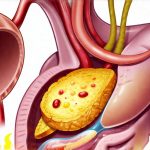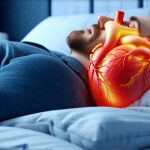Gastroesophageal reflux disease (GERD) and its less severe cousin, occasional heartburn, are incredibly common experiences. Many people intuitively believe that simply staying upright after eating is enough to prevent the burning sensation in their chest – a logical assumption given gravity’s role. After all, if stomach acid can come up when lying down, then staying upright seems like a straightforward solution. However, this often proves insufficient for many sufferers, leaving them puzzled and searching for more effective strategies. The reason is that reflux isn’t solely about physical position; it’s a complex interplay of physiological factors, dietary choices, lifestyle habits, and even underlying anatomical variations.
The misconception stems from an understandable simplification of the problem. While gravity does play a role, focusing exclusively on posture overlooks the numerous mechanisms involved in keeping stomach acid where it belongs. The lower esophageal sphincter (LES), a muscular ring at the end of the esophagus, is the primary barrier against reflux. Its function isn’t just passively resisting gravity; it’s actively maintaining pressure and preventing backflow. Furthermore, the efficiency of esophageal clearance – how quickly the esophagus can neutralize and remove any acid that does make its way up – is crucial. Therefore, even while upright, a weakened LES or impaired clearance can lead to reflux symptoms, making posture alone an inadequate preventative measure. Understanding what causes these issues may also require looking at can acid reflux be linked to food sensitivities.
The Role of the Lower Esophageal Sphincter (LES)
The LES is arguably the most important player in preventing acid reflux. It’s not always “on” or “off,” but rather exists on a spectrum of tightness and relaxation. Normally, it relaxes to allow food to pass into the stomach, then promptly contracts again to seal off the esophagus. Several factors can compromise its function, leading to frequent reflux episodes. – Certain foods (like peppermint, chocolate, and fatty meals) can directly cause the LES to relax. – Medications like calcium channel blockers or nitrates can also have this effect as a side effect. – Conditions like hiatal hernia, where part of the stomach protrudes through the diaphragm, physically alter the LES’s structure and function, making it less effective. – Obesity puts increased pressure on the abdomen, pushing up against the LES and weakening its ability to stay closed.
A weakened or malfunctioning LES isn’t necessarily a permanent state. Lifestyle adjustments can often improve its tone and function. For instance, reducing consumption of trigger foods, maintaining a healthy weight, and avoiding late-night meals all contribute to a more robust LES. However, for some individuals, the LES may be inherently weaker due to anatomical differences or underlying medical conditions requiring further investigation by a healthcare professional. Simply standing upright won’t compensate for a fundamentally compromised sphincter; it’s like trying to hold back a flood with a flimsy barrier. It is also important to review gerd diet plan and what foods can help improve your digestion.
Moreover, the perception of the LES as a simple gatekeeper is incomplete. It interacts closely with other physiological systems. The vagus nerve plays a critical role in regulating LES tone and esophageal motility (the coordinated muscle contractions that move food down the esophagus). Stress and anxiety can disrupt vagal nerve function, potentially impacting LES control. This highlights why stress management techniques are often recommended as part of a comprehensive reflux management strategy – it’s not just about what you eat or how you position yourself; it’s also about managing your overall physiological state.
Dietary Considerations Beyond Just “Avoiding Acidic Foods”
The common advice to avoid acidic foods is frequently given, but often misses the mark. While excessively acidic foods like citrus fruits and tomatoes can exacerbate symptoms in some individuals, they are rarely the primary cause of reflux. The real issue lies with foods that trigger LES relaxation or increase stomach acid production. – High-fat foods take longer to digest, increasing pressure within the stomach and potentially weakening the LES over time. – Carbonated beverages introduce gas into the digestive system, expanding the stomach and putting pressure on the sphincter. – Caffeine can both stimulate acid production and relax the LES.
Focusing solely on eliminating acidic foods often leads people to overlook these more significant contributors. Furthermore, individual tolerance levels vary greatly. What triggers reflux in one person may not affect another. Keeping a food diary to identify personal triggers is far more effective than blindly adhering to generic lists of “bad” foods. A registered dietitian can provide personalized guidance on dietary modifications tailored to your specific needs and sensitivities. It’s also important to consider how you eat, not just what you eat. Eating large meals quickly can overwhelm the digestive system and increase the risk of reflux. Some individuals may find that avocados can be difficult to digest as well, depending on their sensitivity.
The Importance of Esophageal Clearance
Even when some acid manages to slip past the LES, it doesn’t automatically translate into noticeable symptoms. The esophagus has natural defense mechanisms – primarily saliva and peristalsis (wave-like muscle contractions) – that work together to neutralize and clear any acidic backflow. Saliva contains bicarbonate, a base that neutralizes stomach acid. Peristaltic waves propel the acid back down into the stomach. Impaired esophageal clearance can significantly worsen reflux symptoms even with a functioning LES. – Dry mouth reduces saliva production, hindering neutralization. – Conditions affecting esophageal motility (like achalasia) impair peristalsis, preventing effective clearance. – Certain medications can also slow down esophageal motility.
Promoting efficient esophageal clearance involves several strategies: – Staying adequately hydrated helps maintain sufficient saliva production. – Chewing gum stimulates saliva flow and may promote peristalsis. – Avoiding late-night meals allows the esophagus to clear before lying down. – Lying flat immediately after eating hinders gravity’s assistance in this process. When prevent bloating when traveling is a concern, these clearance issues can be exacerbated.
Lifestyle Factors Often Overlooked
Beyond diet and posture, a range of lifestyle factors can contribute to reflux. Smoking significantly weakens the LES and impairs esophageal clearance. Nicotine relaxes the sphincter, allowing acid to flow back up, while also reducing saliva production. Alcohol has similar effects, further exacerbating the problem. Obesity, as mentioned earlier, increases abdominal pressure, putting strain on the LES. Regular exercise can help maintain a healthy weight and reduce stress – both beneficial for reflux management.
Stress management is often underestimated in reflux treatment plans. Chronic stress triggers the release of cortisol, which can disrupt digestive function and worsen reflux symptoms. Techniques like yoga, meditation, or deep breathing exercises can help manage stress levels and improve overall well-being. Finally, clothing choices matter. Tight-fitting clothing around the abdomen can increase pressure and contribute to reflux. Opting for loose-fitting garments can provide relief. Ultimately, managing reflux effectively requires a holistic approach that addresses all contributing factors, not just focusing on staying upright after eating. It’s about understanding the complex interplay between physiology, lifestyle, and individual sensitivities. It’s also worth considering if alcohol on certain diets might be contributing to your symptoms, as well as whether bone broth isn’t for everyone.


















